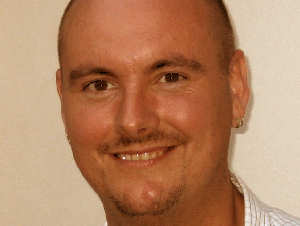The opportunities and threats of a virtual world
 Regular Network Norwich and Norfolk columnist James Knight continues the theme 'the myth of secular progression' with a look at the impact of the media on our society.
Regular Network Norwich and Norfolk columnist James Knight continues the theme 'the myth of secular progression' with a look at the impact of the media on our society.
You may have noticed the world has become pretty ‘virtual’ as the digital age has taken over from the analogue. The virtual world of internet surfing and social networking means it is easier to converse with others, share experiences, acquire more knowledge than ever before, and lastly, easier to acquire the books one wishes to read. But from the feedback I get from speaking with many of today’s younger generation I fear that in some cases the internet may actually be making younger people less knowledgeable, less socially adroit, less ambitious, more complacent in their thinking, and more insecure. The kind of social intercourse it catalyses seems to me to be making people less amenable to person-to-person socialising than in anytime in previous years. We are told that when you communicate with someone the words typed are only about 7% of the communication. If that’s the case this virtual lifestyle may be causing us to miss out on a high percent of the individuals we consider as friends – their expression, the moods and feelings radiating from them (I always said you can never really know someone until you look into their eyes).
I have many online friends whose thoughts and ideas I know well, but who I know not at all in person. Even those I do know in person can be engaged with nowadays without having to be physically seen in person. Everything seems so hurried these days – I’ll bet we don’t stop and speak so much, or telephone or visit – we just text or email far too much, don’t we? I know I do. Friendships, closeness, the intimacy of togetherness – are we lacking in this important area of life? I would say that at times we are. I know I am.
Moreover, this is a time when Christianity is most misrepresented, with all sorts of false claims made by atheists about the historicity of the Bible, and this isn’t surprising. In the past year alone, I have seen on the Internet, people that say ‘No man is an island’ and think they’re quoting Hemingway rather than Donne; there are people that think Kurt Cobain wrote ‘The Man Who Sold The World’; and there are those who do not realise that when Aldous Huxley spoke of ‘The Doors of Perception’ he was borrowing from William Blake and that ‘Brave New World’ is straight out of Miranda’s speech in Shakespeare’s ‘The Tempest’. The point I am making is that our culture is laden with associate images and opaque references to past things, and perception of great art and authentic talent has been shuffled in with a heart-rending myopia towards all things beautiful and authentic - including, of course, the epistemological legacy of history itself.
 Be honest – are you really enamoured with much of what you see these days? I’m not. As a point of observation and forecast, growing up in a world in which internet networking, texting, tweeting, etc is the predominant way of life will in all likelihood engender a plethora of less ambitious, more uneducated and more insecure youth. When you see reality shows in which bewildered young people are brought out to be embarrassed by overpaid celebrity judges and humiliated in the newspapers the following day, don’t you look back with fondness to the time when we had a bit more self-respect? When you look at the kind of lifestyles that youths in gangs have don’t you look back with fondness to a time when the family unit was better than it is today? When you see the greed and acquisitiveness of so many white collar businessmen today, don’t you look back with fondness at a time when Christian charity was more highly regarded?
Be honest – are you really enamoured with much of what you see these days? I’m not. As a point of observation and forecast, growing up in a world in which internet networking, texting, tweeting, etc is the predominant way of life will in all likelihood engender a plethora of less ambitious, more uneducated and more insecure youth. When you see reality shows in which bewildered young people are brought out to be embarrassed by overpaid celebrity judges and humiliated in the newspapers the following day, don’t you look back with fondness to the time when we had a bit more self-respect? When you look at the kind of lifestyles that youths in gangs have don’t you look back with fondness to a time when the family unit was better than it is today? When you see the greed and acquisitiveness of so many white collar businessmen today, don’t you look back with fondness at a time when Christian charity was more highly regarded?
Of course I do not say the sixties revolution is the direct cause of all this – but I note with some degree of irony that the positive things one would hope to have seen as a result of this – for example, liberation of individuals and increased self-confidence – have not been realised. We now have a nation in which a great many of the young adults have been robbed of self-confidence, individualism, aspiration and a good education. Instead of irrigating the deserts that remained in certain areas of UK living we have cut down most of the trees that had been standing for years. Added to the sixties revolution was the consequent Thatcher and the Reagan politics of the eighties which was predominantly selfish and parochially in favour only of those who had much to contribute. In search of a guiding ideology, the politics of Thatcher and Reagan failed miserably in redressing the mess of the left’s counter-cultural assault – instead focusing on few economic reforms and the brute force of the market economy, which is often disinterested in patriotism, morality, Christian values, and the stability of family unit.
In many cases the country resembled the biblical vineyard where the right-wing tenants formed an unwelcome co-operative while the landlord had been deposed – murdering any who sought to intervene for the better. As we know, Jesus informs them at the end that the bad tenants who will be brought to a bad end were the ones who thought they were doing things aright. Naturally, as I alluded to earlier, the church has in some way contributed to its own downfall by not coping well with the changing zeitgeist, and the social ethos that emerged from the cultural and sexual revolution was perhaps in part a reaction to the austerity of the ultra conservative churches of the forties and fifties – demonstrating once again that the right balance of conservatism and liberalism should always be sought. Remember I am not addressing the issue of whether the church had too much of an institutional austerity (in many cases it did) nor whether it emitted the light of grace very well (in many cases it didn’t ) – I am addressing whether the departure from Christ-like Christian values has made this country worse (and I feel certain it has).
The modern post-counter-culture world gives us a heavy paradox. On the one hand as Christians we have every reason to embrace the world of technology such as the Internet, the mass media, our ability for greater communication, and our prodigious opportunity to travel anywhere on the planet, all of which gives us the perfect platform from which to reach out to the whole world. But there is a price to pay, one that even that prescient George Orwell himself failed to predict, the profound threat to human dignity that resulted from this modern way of life - the crude and vulgar exhibitionism to which people subject themselves and the crass ways in which people want to be famous or in the public eye for no other reason than the fact that ‘being famous’ and ‘being rich’ seems to be for many the apotheosis of human ambition. That said, if we are quick to recognise the myopia of much of our generation, we must be equally quick to recognise those in a media-laden world who are so good at taking advantage of people’s myopia.
In closing I want to say that the great media and networking potential needn't be a spectre that casts a shadow over the future of Christianity (and in many cases it isn't). Of course, when we are dealing with something as powerful as divine grace, there is always an opportunity to reflect that in our daily lives. And I echo what the perennially impressive Bishop Graham James says - "With the media as it exists today, there are elements we sometimes curse but it is more often a blessing and without it we would be a diminished society”. But I worry that when considering the broader picture, our increased lionisation of science and our habitual virtual embrace may be symptoms of a promethean fall away from Christ – not that the virtual world is a cause of this departure, but rather that it has become an attractive gate for lost sheep whose inclination to go back to their shepherd has dissipated. One thing seems clear - our increased material standards haven't given us the well-being that many hoped it would. Let us use the media-laden world to make a big impression whenever we have the opportunity.
The views carried here are those of the author, not of Network Norwich and Norfolk, and are intended to stimulate constructive debate between website users. We welcome your thoughts and comments, posted below, upon the ideas expressed here. You can also contact the author direct at james.knight@norfolk.gov.uk
James is a Christian writer and local government officer based in Norwich. You can access his current collections of columns here
Meanwhile, if you want to find out more about Christianity, visit: www.rejesus.co.uk